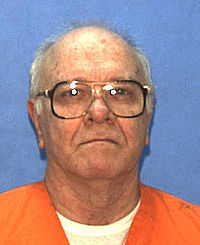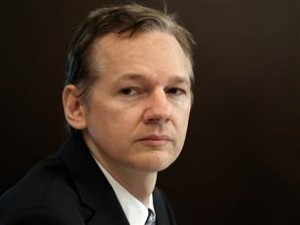September 6, 2011
Facts of the Case
New York Times Co. v. United States (1971) – Link to Case
The New York Times and the Washington Post obtained illegally copied secret documents
on the Vietnam War referred to as the Pentagon Papers. The U.S. government
issued a court order through the United States District Court of New York, to
prevent the publishing of the documents. The New York Times and the Washington
Post published the information anyway. The New York Times appealed the injunction
and the case ended up in front of the Supreme Court. (according to infoplease.com)
Legal Issue
The argument on the part of the newspapers was that their reporting was protected under the First Amendment. The U.S government argued that prior restraint was justified in this case.
Prior restraint, as referred to in this case, is where the government prevents
the transfer of information (press, informants, etc.) because it presents a
threat to national security. It is a form of censorship.
Decision
The court ruled 6-3 in favor of the New York Times
and The Washington Post. They affirmed the appeal in favor of the Washington
Post, and they reversed the decision of the lower courts for the New York Times. The decision in this case has been extreamly important to the world of journalism, and has been referenced in many cases since this decision.
Analysis
The court felt that The United States Government had the burden of proving that this information should be held back by showing how the information would damage national security. The court felt that the government did not make that case, and therefore the First
Amendment rights of the Freedom of the Press were most relevant here and the newspapers
had every right to publish the documents.
There were three prior cases referenced in the courts decision. The first was Bantam
Books Inc. vs. Sullivan which claimed that a state body cannot prevent
the sale of published material on the grounds of obscenity. The second, Near
vs. Minnesota says that a publication cannot be shut down due to their
publication of malicious, scandalous or defamatory material. The last case
sighted in their decision was Organization for a Better Austin vs. O’Keefe. In this case, a local Chicago group was distributing leaflets against a local realtor claiming he was involved in
unsavory practices in the area. The relator sued claiming that his right to privacy
was violated. The court ruled in favor of the group distributing leaflets. This
is the case where the phrase, “the heavy burden of justifying the imposition of
the prior restraint,” came from that was so powerful in the courts decision in
favor of the newspapers. This means that it is the person in the lawsuit that
wishes to have prior restraint upheld that must prove there is a strong enough reason
to justify this action.
There were interesting arguments on both sides of this case. Justice Black concurred with the overall ruling, saying that the news organizations did exactly what they were supposed to do in
this situation, which is inform the public of important activities of their
government. He stated that the executive and legislative branches of government
should have no rights to make a law that suppresses the free press. According
to Black, James Madison wrote that this type of censoring was exactly what the
First Amendment was there to prevent.
Brennan also concurred, claiming that these rulings should be an indication that preventing the press from publishing information in the future should only come to the court with a very
good reason. The government does not have a right to suppress embarrassing
information. The country was not at war when these items were published. He
also states that there are no copyright laws on an item’s basic ideas (which is
what was published) but only on the “Form of Expression.
Justice White said that since the Executive Branch holds power over foreign relations and diplomacy that is unchecked, then it is here that the freedom of the press is most essential for an informed public.
White States,
“In the absence of the governmental checks and balances present in other areas of our national life, the only effective restraint upon executive policy and power in the areas of national defense and international affairs may lie in an enlightened citizenry — in an informed and critical public opinion which alone can here protect the values of democratic government.”
He also recognized that secrecy is sometimes essential in foreign relations though not in this case.
As the most powerful dissenting opinion Chief Justice Burger said that that he felt the decision was hastily made. He claimed the court did not properly hear any facts of the case and gave
a general decision for the benefit of the First Amendment. He also noted that
the Times kept their acquisition and work on these documents a secret, and that
it did not afford the U.S. Government the same right to secrecy it expected for
itself by publishing the documents.
Questions
1. How do you feel about a newspaper publishing secret government documents?
2. Do you think this case has/or could have any bearing on Julian Assange and Wikileaks?
3. In his dissent Justice Burger pointed out that the newspaper claimed during the investigation that it should not have to release information about the source of the documents to the court for their source’s protection, and that the newspapers did not respect this same sentiment when it acquired and published secret government documents. Do you think both the newspaper and the government should have the same right to privacy in their occupations? Why or why not? What about for reasons of protection (sources, informants, etc.)?
 Oba Chandler
Oba Chandler A book about the 1976 trial
A book about the 1976 trial




